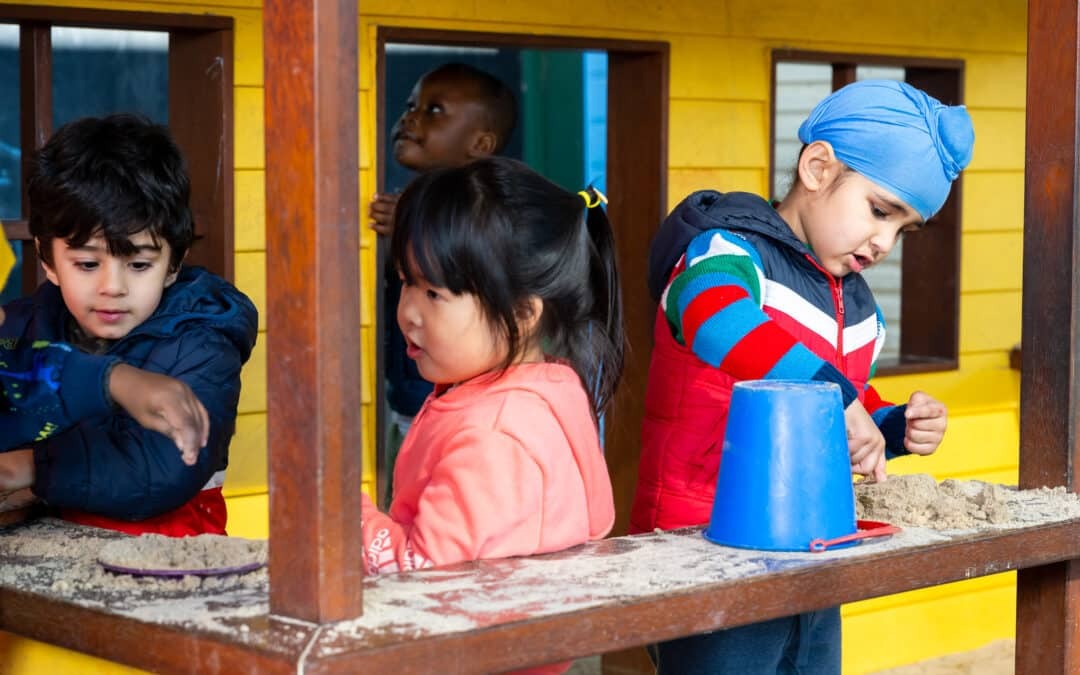As the parent or guardian of a 3-4 year old little learner, selecting the perfect kinder is an immensely consequential task that can have real and lasting impacts on your child’s development. Particularly daunting is the challenge of choosing between a sessional and full-day (or long-day) kindergarten.
Full-Day Kinder
It’s easy to feel pangs of guilt at the thought of ‘abandoning’ your child to the staff at a long-day kindergarten. But the truth is, there are a wealth of benefits to choosing this option over sessional or part-time kindergarten.
Full-day kindergarten requires children to attend for – you guessed it – the full day, just like older children attending school with extramural classes would be required to do, except that it’s tailored for an earlier development phase.
There is ample research suggesting that time spent at full-day kindergarten offers children tremendous and positive academic and socio-emotional development advantages – particularly in the case of children from less advantaged backgrounds.
Long-day care and kinder programs provide children with more time for learning, playing, and interacting with their peers, not to mention taking part in various art, craft, music, and physical education sessions throughout the day.
By offering ample time for diverse activities and interactions, together with scheduled mealtimes and naps, long-day kinder programs help children establish productive full-day routines, instilling stamina and boosting their development in preparation for school.
Sessional Kinder
As you already guessed, sessional kindergartens are designed for children who need care for just a few hours each day (usually 2-4 hours, give or take), and only on certain days or as needed.
While this option may be better suited for parents with flexible schedules or who only work half-days, it’s not necessarily ideal in cases where parents feel that their little one’s aren’t ready for a full-day routine’, and here’s why.
Children who don’t necessarily have special needs, but tend to become reactive when separated from their parents, are the ones who can benefit the most from establishing structured, full-day, parent-free routines in preparation for school.
Likewise, children in this age group, with either sluggish development or socialisation issues, are the perfect candidates for the type of diversified and interactive, play-based learning experiences that full-day kinder offers. However, the decision rests with you.
Weighing the Pros and Cons
At Little Learners Early Education Centre in South Morang, we offer long-day kindergarten programs for up to 12 hours a day, 5 days a week, 52 weeks a year.
Our full-day weekly schedules include all the bells and whistles mentioned above, and welcome children with learning difficulties such as Autism, ADD, and ADHD, as well as children with physical concerns such as diabetes and asthma. Our sessions are fully inclusive, and as activity-diverse, as we can make them in the time allowed.
It’s important to understand that both options have their pros and cons. For example, part-time or sessional kinder may be more appropriate for parents with flexible schedules or part-time jobs; while full-day kinder is ideal for children who lack structure, social skills, or practical confidence.
Luckily, at Little Learners, our full-day options are still available however limited!
In Conclusion
A key piece of advice we offer to parents like you, who’re still weighing these options, is to visit Little Learners along with any other kindergartens facilities you may have in mind.
Speak to the caregivers, teachers, and administrators there, get a feel for the daily schedule and try to sit in on some lesson and play time if you can.
Ultimately, your decision on whether to enroll your child in a sessional kinder or long-day kinder should be based on your child’s unique needs, as well as your family’s schedule and preferences.
Your munchkin may be small but this decision isn’t. Rather, it’s an investment in your child’s future, and it needs to be considered from every angle.




















































